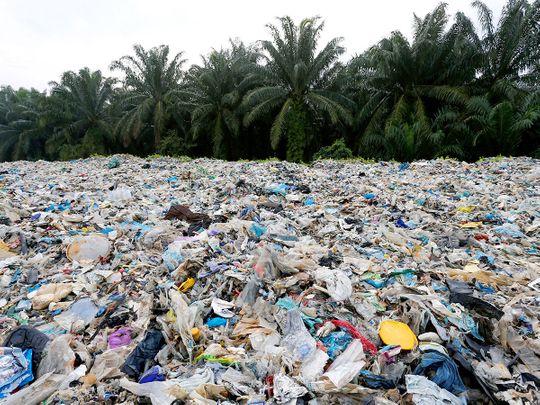
ISLAMABAD: The total mass of plastic waste generated so far in Pakistan is equal to the size of two K-2 mountains. This startling revelation was made by Federal Minister for Climate Change Senator Sherry Rehman while addressing a policy dialogue titled “Exploring the Potential of Circular Economy in Pakistan.”
Senator Rehman said Pakistan was among the top 10 countries affected by environmental degradation and in the recent floods of September 2022, some 33 million people were affected by the floods.
“We have never seen such a huge destruction caused by climate change,” she added.
K2, at 8,611 metres above sea level, is the second-highest mountain, after Mount Everest. It lies in the Karakoram range, partially in the Gilgit-Baltistan region.
The minister was of the view that Pakistan’s major stakeholders would have to make joint efforts in controlling waste management.
Water reserves drying up gradually
Another challenge, she said, was dwindling water reserves. “Our water reserves are drying up and we have a system of rivers which is the lifeline of Pakistan. Natural calamity floods have badly affected the economy of Pakistan with a loss of its 9 per cent GDP.”
Unmanaged waste, she said, was a major problem in Pakistan whereas the ministry has worked to reduce greenhouse gas emissions. The Ministry of Climate Change had launched the Living Indus Initiative, Sherry Rehman said.
In a post on social media, Sherry Rehman highlighted the plastic waste challenge: “We know how plastics impact the economy, but there are still no low cost alternatives for the actual end users and consumers. Our plastic waste stands at 3.3 Mn tons a year and it finds its way through landfills and it’s strewn across our water bodies.”
“Recycling of plastic and various things is being done all over the world. Pakistan also needs recycling centers. However, the provinces are now exporting equipment that is used in recycling,” she added.
No data available about plastic waste
The minister said she had been in office for the past 11 months but still she did not have the complete data related to plastic. Our oceans are full of waste material surpassing the number of fish. We need a policy to control plastic waste that is in practice,” she added.
Earlier, in his opening remarks, Executive Director of the development think tank, Sustainable Development Policy Institute (SDPI), Dr Abid Qayum Suleri said circular economy emphasis should be placed on reducing waste, recycling materials to reduce environmental impact.
The importance of reusing products should be emphasized, he said. Dr Suleri called for public and private sector engagement on research, policy to establish own network on the circular economy.












